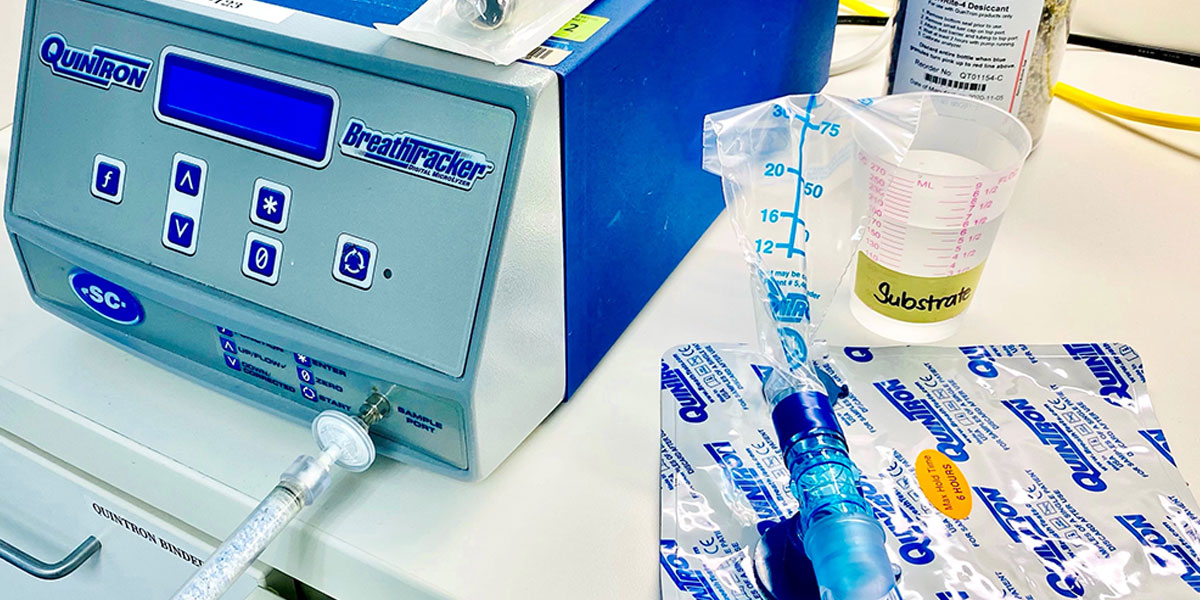This post is also available in:
![]() Español (Spanish)
Español (Spanish) ![]() Français (French)
Français (French)
What is a hydrogen breath test?
Some children with abdominal pain, gas, or diarrhea may have difficulty digesting foods containing certain carbohydrates (sugars). Symptoms of this difficulty digesting sugars, called carbohydrate malabsorption, include abdominal pain, gas, bloating, or loose stool. The most common type of carbohydrate malabsorption is lactose (milk sugar) intolerance.
A hydrogen breath test can evaluate your child for carbohydrate malabsorption. This test also may be helpful to assess for a condition that occurs when there are high numbers of bacteria in the intestine, called small bowel bacteria overgrowth.
Bacteria are common in the healthy large intestine but are also found in an unhealthy small intestine. These bacteria produce hydrogen by breaking down unabsorbed carbohydrates. For someone with carbohydrate malabsorption, bacteria in the large intestine produce large amounts of hydrogen when a sugar-containing liquid is consumed. The hydrogen is absorbed into the bloodstream and released in the lungs, so it can be measured in the breath.
How is the hydrogen breath test performed?
The hydrogen breath test may be done in the doctor’s office or in a laboratory. There are also some kits available for home testing.
For this test, the child’s breath sample is taken before they consume a specific sugar.
After this first sample, your child will then consume a sample of the suspected sugar. If your child’s doctor suspects lactose intolerance, your child will drink a liquid containing lactose (milk sugar). Then, the child will provide breath samples every 30 to 60 minutes for up to 3 or 4 hours. Symptoms are recorded during the test and for up to 8 hours after the test is completed.
What are the risks of a hydrogen breath test?
There are minimal risks to the hydrogen breath test. Children may experience abdominal bloating, pain, and loose bowel movements after ingesting the specific carbohydrate, especially if they have difficulty digesting that carbohydrate. For children with lactose intolerance, the discomfort would be similar to what they might experience after having one or two glasses of milk.
What do I need to do to prepare for the hydrogen breath test?
Your child’s doctor may recommend changes in diet, exercise, and medication use before taking the test. Here are some general guidelines:
- Children should avoid physical exercise before and during the test.
- Children should fast overnight and follow a restricted diet, consisting of rice and meat, and avoiding slowly absorbed carbohydrates such as bread, potato, and fiber.
- Medications such as laxatives, antibiotics, and probiotics may affect the results of the breath test. Children should avoid using these medications for up to four weeks before testing. Antibiotics alter the bacteria in the large intestine, and laxatives reduce fermentation of sugars.
- Using mouth wash before the test may be helpful because it can inactivate bacteria in the mouth. This can reduce the chance of an inaccurate result.
Authors: Anthony Porto, MD
Editor: Athos Bousvaros, MD
March 2021
This post is also available in:
![]() Español (Spanish)
Español (Spanish) ![]() Français (French)
Français (French)






